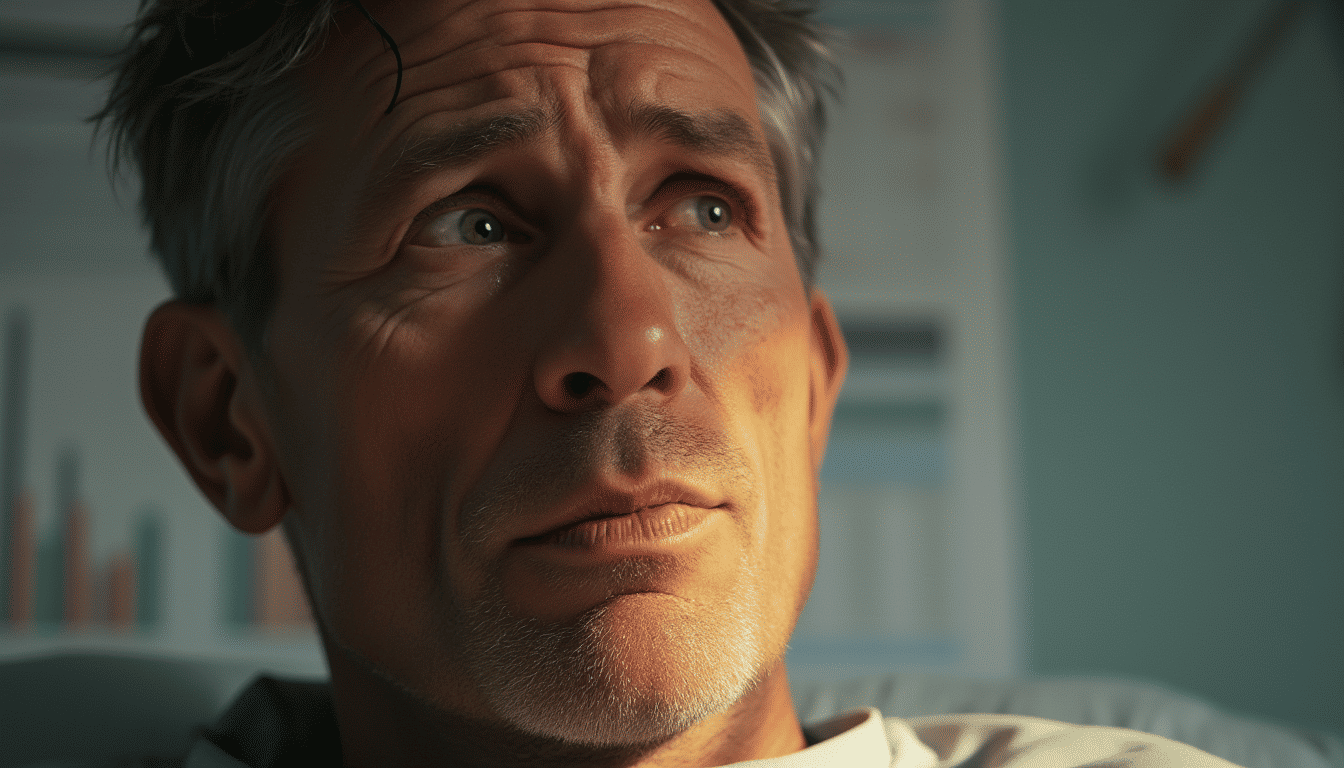The Weight of Waiting: Living with a Tentative Neurological Diagnosis
Living in medical limbo is a terrible place to be. The constant dismissals and feeling like no one wants to solve your puzzle, it’s the whole damn system.

It has been close to seven years since my journey, scrap that, battle for answers began. Seven long years since my life and body forever changed. Seven difficult years of not understanding what took everything from me, seemingly overnight.
Today marks around two and a half weeks until I meet my next professor. I've been waiting for this appointment for over six months. Which, in the grand scheme of things, isn't that long. Especially when considering this has been a seven-year diagnostic odyssey!
It may be surprising to note that this will be my 4th professor of neurology, not counting the various neurologists I have consulted during this period.
I want to hope for answers, but I'm also preparing for disappointment. This scepticism is shaped by years of fighting through a broken system, not being believed, and the exhausting need to keep advocating and pushing forward.
As my appointment approaches, I'm reflecting on this tiring journey and the complicated emotions that come with each new opportunity for a diagnosis.
The Weight of Waiting
The wait for this appointment has been difficult, but given the broader timescale, which I usually use to help put six months into perspective.
The hardest part for me is that I feel like my life is on hold. Unable to move forward. Unable to even acknowledge where I am at and why. The solitude that accompanies this situation can feel utterly suffocating. It can be incredibly lonely when nobody around you, through no fault of their own, is able to truly understand.
Many healthcare professionals will say that labels are not important. However, I wonder if they'd feel differently if it were their lives or that of a loved one? I'd imagine they'd search high and low to locate the cause of their declining health and increasing disability!
I agree with the notion that our conditions, diseases, or disabilities shouldn't define who we are as individuals. However, in reality, they do. From my experience, it would be extremely difficult for them not to.
Although I do have a number of neurological diagnoses, they don't feel stable enough to accept. That isn't a denial thing, that is a science and evidence-based thing.
See, having so long to ponder one's daily life enables you to carry out tremendous amounts of research. Which is exactly what I have done. At this point, my own GP recognises that I know more about my neurological conditions than she does, and in her own words, which I am paraphrasing, she says: "You tell me what you need and I'll get it sorted if it falls within my capabilities...".
She also quite openly told me that out of the 15,000 patients registered at my medical practice, I am the only patient with my diagnosis. I have literally had times where I've had to tell doctors what to prescribe me because they simply don't know anything about my conditions. This just exacerbates the isolation because not even your local doctors or GPs know what to do, let alone what the conditions even are.
Waiting for these appointments causes my mood to ebb and flow. My levels of stress and overwhelm can become unbearable at times. Usually on my worst days, when symptoms become to much, the medication isn't helping or is adding to the problem. Life just becomes, well, shitter!
It's in those moments that I am reminded of how lucky I am to have my wife. She is my rock and often provides the shoulder I need to cry on. Always prepared with tissues for the emotions that come from living this way for so long.
Seven Years Without a Clear Diagnosis
Living in medical limbo is a terrible place to be for any amount of time, let alone the best part of seven years. For me, it has created a level of anxiety that is alien to me. I don't recognise it. I don't recognise me!
I worry about judgement from others when I am out of the house. People, complete strangers may I add, comment or ask questions about why I walk with a cane, which, by the way, is fucking weird. If you're one of those people, please commit right here and now never to do that shit again. Please. It is strange.
I have been asked, while doing the grocery shopping with my wife, if I had a "gammy knee or something". The look on his face when I replied that it was highly likely a form of motor neurone disease was hilarious. You could watch the awkwardness wash over him, while he fidgeted, made some paltry attempt at humility, saying, "Sorry to hear that." Before walking away and getting on with his life.
It is those interactions that make going out harder. Being asked, "What is the matter with you?" And not having either a solid answer to give or a condition that they would even understand or have heard of.
Although I know that I owe these people nothing and I certainly don't need to explain my medical history and diagnoses to them. It's hard, and to make it worse, it isn't just with strangers, but friends and family to. Living in medical limbo land, which is what I call it, is a drain on everything, both physically and mentally.
Diagnostic Overshadowing
I have found medical limbo land to be incredibly dangerous. Why? Because when you have had extensive medical testing with numerous consultants trying to locate the cause, in what can only be described as a huge pissing contest, I mean, a battle of egos and "potential" this or "probable" that on your notes. Nobody, and I mean nobody, wants to have anything to do with you. Especially when it comes to the complexities of neurology.
For me, this also extended to A&E or, for my readers internationally, the ER. I once lost consciousness because my brain decided that breathing was completely optional. It wasn't, by the way!
Due to asphyxiation, I'd burst blood vessels in my eyeballs and all over my face and neck. It was certainly a sight. My wife rightly called an ambulance which arrived within minutes and took me to hospital. I arrived at 7:41 am and was discharged by 9:11 am. Yep. The same morning. With no investigations and some explanation seemingly plucked from thin air.
I have since carried out a SAR, or Subject Access Request, which, for those that are unsure, is a legal right granted to residents of the EU/UK. In short, you can request any personal data that a business or organisation holds on you, and they have 30 days to compile this data and send it to you, without charge.
In these disclosures, it demonstrates that they simply didn't know what to do with me. I'd undergone extensive investigations, and some "professionals" had mentioned functional conditions such as Functional Neurological Disorder (FND). And that is exactly what the emergency staff had placed on my notes, with a giant exclamation mark!
This is a classic example of what is known as diagnostic overshadowing. A dangerous bias deeply embedded in healthcare systems. I can only personally relate to my experiences within the UK's NHS, where it is certainly alive and well. However, I can assume with much confidence that it exists throughout the "modern" healthcare systems of this planet.
I have written a longer piece on diagnostic overshadowing, and with other examples that I have experienced on my journey. You can view this article below.

Pre-Appointment Anxiety
Anxiety is now a common experience in my life, especially when it comes to my health, symptoms, and hospital appointments. Having a health condition is usually
From the moment I first noticed something wasn't right and my body started to go haywire, my symptoms were dismissed as mental health related. To consultants taking huge risks with my long term health by ordering investigations that weren't without risk, just to try and prove something for which there was no evidence of in the first place.
It is those kind of attitudes that have altered my view of the healthcare system and, with it, brought about a genuine distrust of the profession. I have experienced the egos of professors to proud to admit they don't know, or so wrapped up in their own areas of special interest, that they were only looking for evidence to meet their narrative.
These experiences, accumulated over many years, have culminated in gut wrenching anxiety when it's time to head to hospital appointments. I sit in the waiting room, sweating profusely, feeling my heart beating through my chest while wondering what psychological damage could be inflicted on me at this appointment.
You know you've been driven to a certain point when you worry about the appointment more than any of the nasty diagnoses they could make. It's quite telling really, isn't it?
Managing Expectations After Being Let Down
When it comes to expectations, I have learned to try and not have any, or severely limit them. Despite that, it is all but impossible to not have, at least some in these situations.
Whether that be an expectation to be listened to, believed, taken seriously, or to simply expect to receive a solid diagnosis.
I have gotten very good at saying outwardly that I don't have any expectations for a particular appointment, but deep down, I know they're there. I just can't stop them, no matter how hard I try.
This does take a tremendous toll on me emotionally, and on a number of occasions makes me want to give up on the fight for answers and treatments that may help me.
Previously, I have dealt with these situations with very poor coping strategies such as drinking alcohol or eating more ultra-processed foods, all in a futile attempt to hide the emotional turmoil I was enduring. At one point I was consuming a bottle of Bourbon a week, which to some may not seem a lot but to others, myself included, it was a lot. As someone that never used to consume alcohol in my own home, to drinking a bottle of Whisky a week. That was extreme and the beginning of a spiral.
Thankfully, I am quite insightful and can recognise when these behaviours happen. Enabling me to begin the process of pulling myself back out and away from the inevitable depths of despair where these strategies are certain to take you.
What I Wish For From This Appointment
I guess at this point I just want. Need even. A professor who is able to genuinely listen to me. Take on board all I have to say. Who believes what I have to say and whom doesn't discount things because they don't fit into a neat little box in some textbook. Why? Because I am not a textbook case. I've never been, and that right there is where many of these issues have stemmed from.
I am desperate for diagnostic clarity and feel ready for whichever direction that goes in, as long as it is a committed and evidenced diagnosis. One in which my professor can explain and justify. Not just because he says so.
I have my own theories and hypotheses regarding how my illness initially began, and I would like to feel comfortable enough to share this with him.
Medication and treatment wise, I am hopeful that he'll be open to exploring medication options that others haven't been. For instance, trying medication in off licence ways. An example of this would be for my tremor. I am going to propose a drug trial using medications typically prescribed for patients with Parkinson's disease.
Contingency Plans: If It Doesn’t Go Well
When all is said and done, I have little control over how these appointments go. I can advocate for myself, be assertive, and ensure I put my point across and the research I have conducted. Ultimately, the outcome of this appointment is, unfortunately, in the hands of the professor.
If things don't go well here, I'm not really sure what's next. It feels like I have reached the end of the road in terms of medical professionals in the UK. After all, this is the top UK specialist centre for neurology. Where else do you go?
Of course I'll have the option to ask for a second opinion, or would that be a 9th by this point? Although I'd imagine they'd all stick together, or again, that could be my scepticism!
Broader Reflections
Living through this mess for nearly seven years, I’ve come to realise my story is, unfortunately, far from unique. What’s happened to me, the constant dismissals, the diagnostic ping pong, the feeling of being some inconvenient puzzle no one wants to solve, is happening across the board. This isn’t just about one bad doctor or an isolated incident. It’s the whole damn system.
Diagnostic overshadowing isn’t a rare glitch; it’s part of the machinery now. Once you’ve been in enough rooms where eyes glaze over at your “list of oddities,” you notice how quickly doctors reach for the labels they know, mental health, “functional,” “probably nothing.” And if you don’t fit, it’s almost like it’s your fault for being atypical. I can’t help but wonder how many people have had life altering diagnoses missed or delayed because a clinician settled on the most convenient answer, and at what cost to patients’ bodies, minds, and futures.
What’s almost laughable (if you don’t laugh, you cry) is how often I’ve known more about my rare conditions than the professionals tasked with managing them. I’ve literally had to instruct GPs on what to prescribe, and not because I have a medical degree, just because I was desperate enough to dig and research for answers when no one else would. That shouldn’t be the patient’s job.
Doctors, consultants, professors, sometimes they just can’t say “I don’t know.” The egos, the rigid rules, the “if it doesn’t fit, it doesn’t exist” mindset… it leaves people like me hanging in limbo, with nowhere safe to land.
If only there was a little more humility in medicine, a bit more listening, and a lot more openness to being wrong, maybe fewer people would be left feeling written off and alone.
I don’t want to hate the NHS. I don’t want to be that person on the endless carousel of second, third or the tenth opinion, each time hoping maybe this one will have an open mind and a willingness to look a little deeper. But this is what happens when the system is set up for the average, not the outlier. No one’s safety net should have this many holes.
It isn’t enough to tell patients “don’t let it define you”, not when you’re carrying the weight of all the ways you’ve had to defend and explain your own suffering. We need a shift. More up-to-date training on rare and complex neurological conditions, a proper space for patient voices in clinical decisions, clinicians who aren’t scared of uncertainty, and less of this dismissive, box ticking culture.
I wish I could say my case is rare. But honestly? I know I’m not alone. And that, more than anything, is the real tragedy here.
Wrapping Up
I go into this appointment with a mix of anxiety, fear, hope, and a large portion of caution. I try to keep positive about seeing new consultants and professors, but my experiences make this so difficult.
The game of psychological ping pong has, after nearly 7 long years, caused monumental damage to my self esteem and confidence. I am not the person I once was.
Yes, my illness is certainly one of the main reasons for this, but the second biggest cause is certainly the treatment I have received throughout my journey thus far.
If you are reading this while on a similar journey, or perhaps yours has only just begun, you're not alone. There are lots of people just like you and I, all around the world.
One of the greatest things about today's modern and connected world is our ability to connect with these individuals across oceans via an internet connection. Although not the same as meeting people in person, it does enable us to connect with others that are going through the same or similar experiences.
If I can give you one piece of advice. Find these people. They will be on blogs (like this one), Facebook groups, Reddit, and a whole host of other platforms dotted across the internet.
Build your support network. Lean on these new "friends" when things get tough. Importantly though, do not give up. The journey can be a long and arduous one, and the fight is exhausting. You'll often question whether it is even worth it, but you must keep going.
We all have the right to find answers. We all have the right to be treated with empathy and dignity. We all have the right to be treated.






